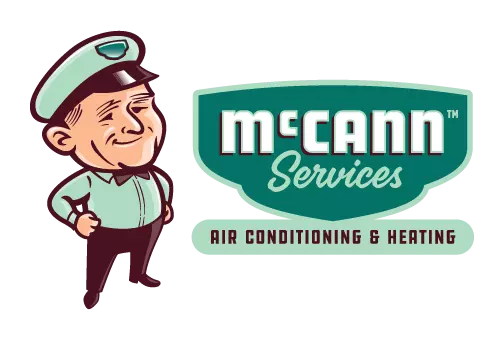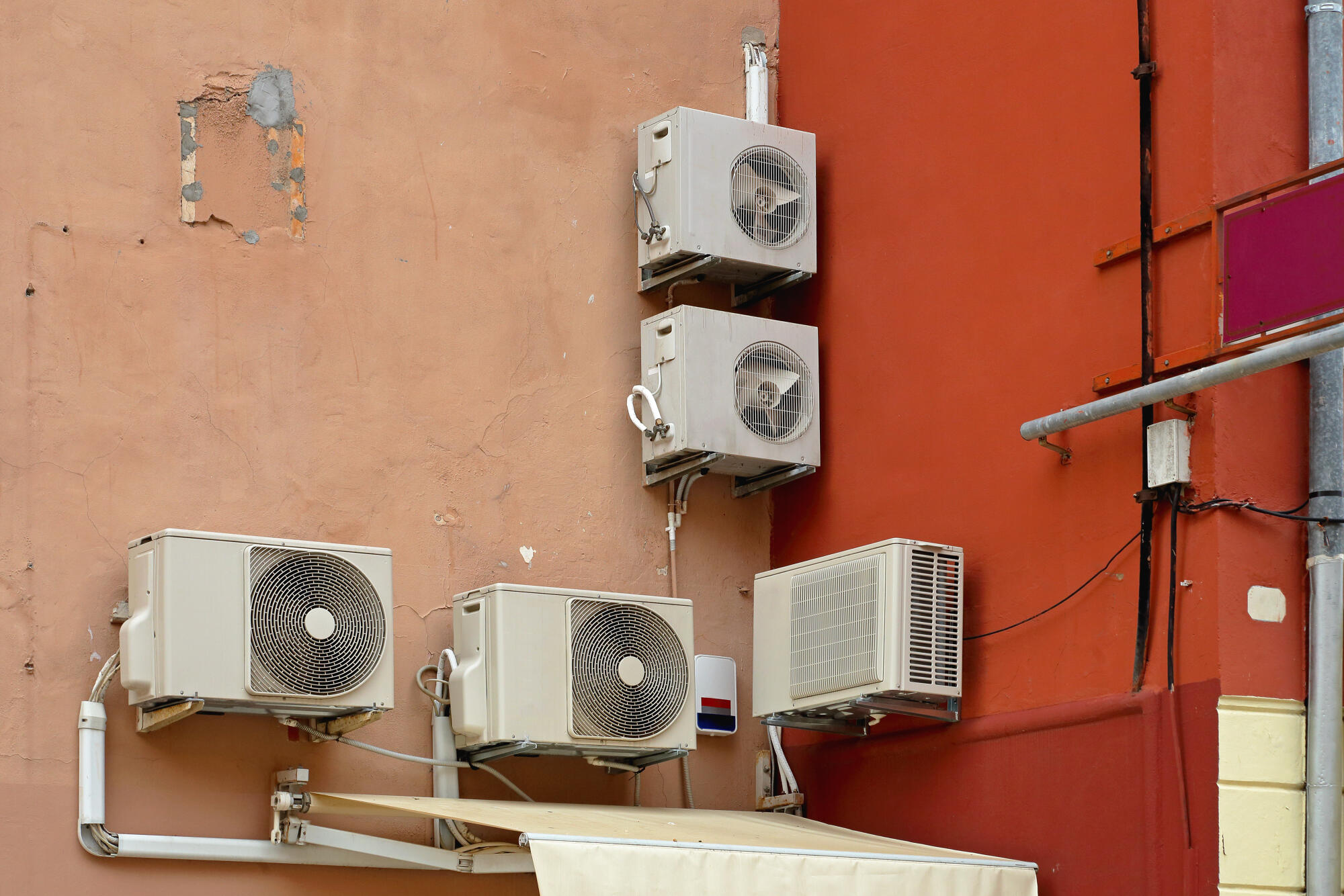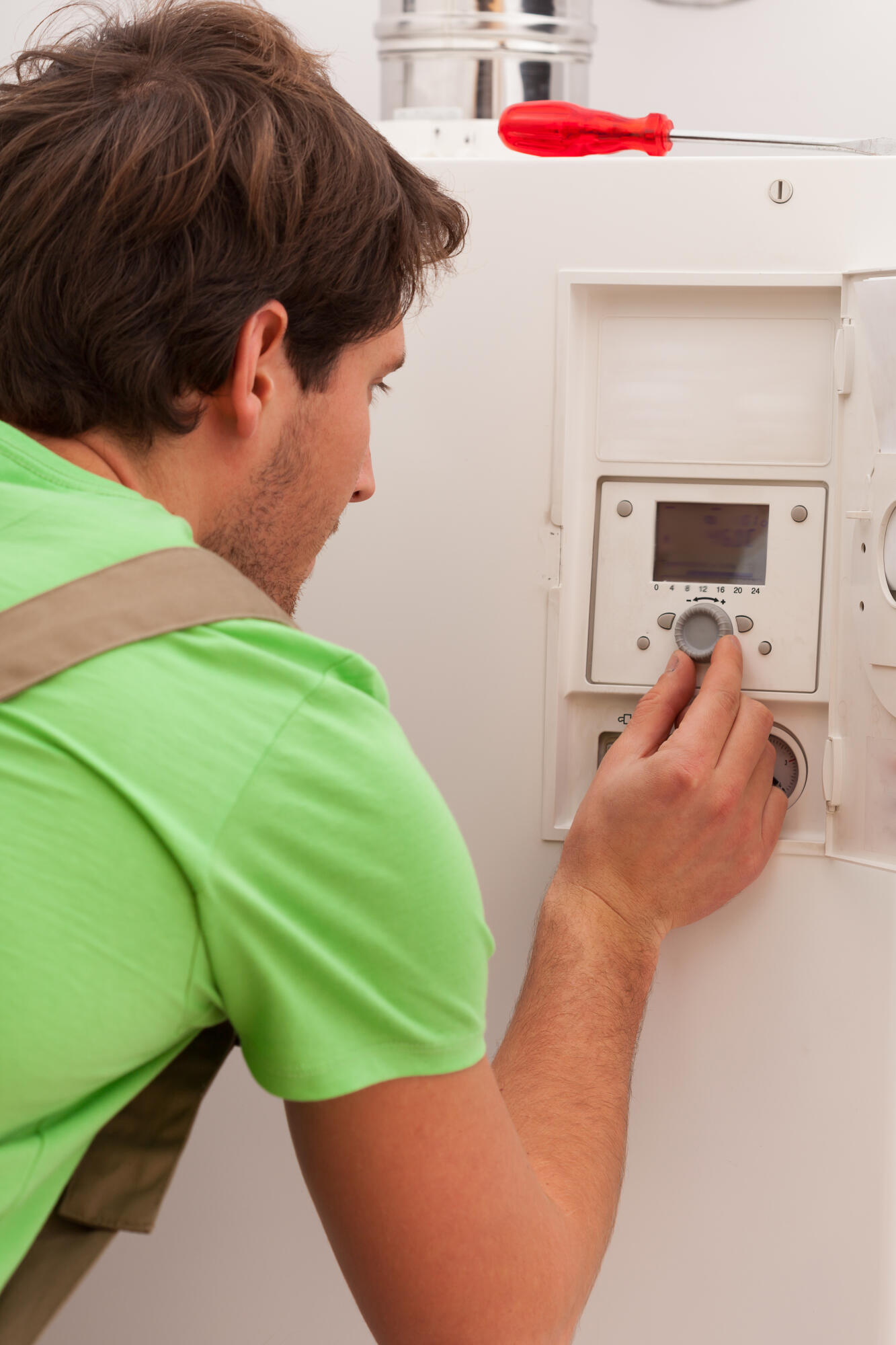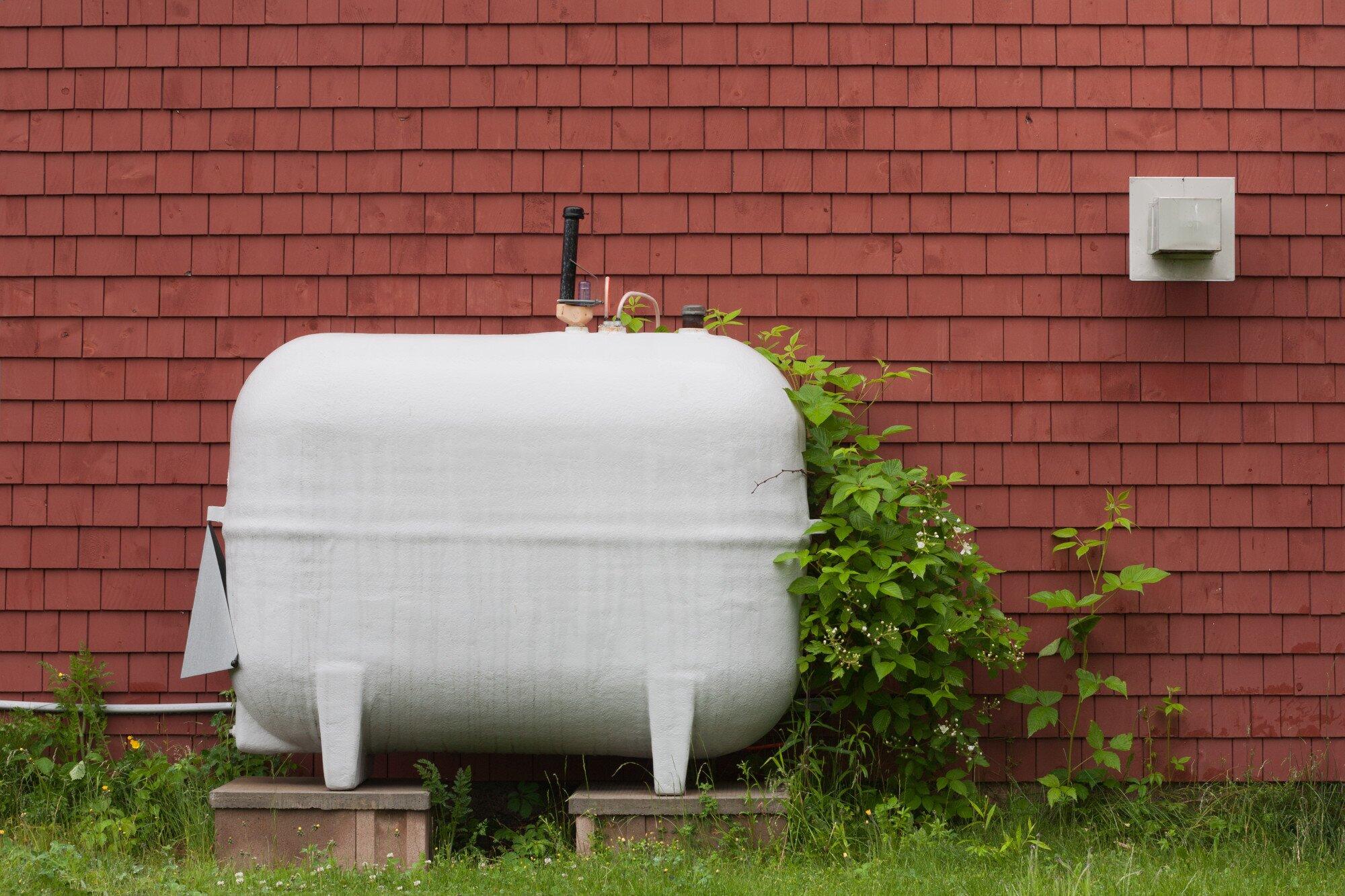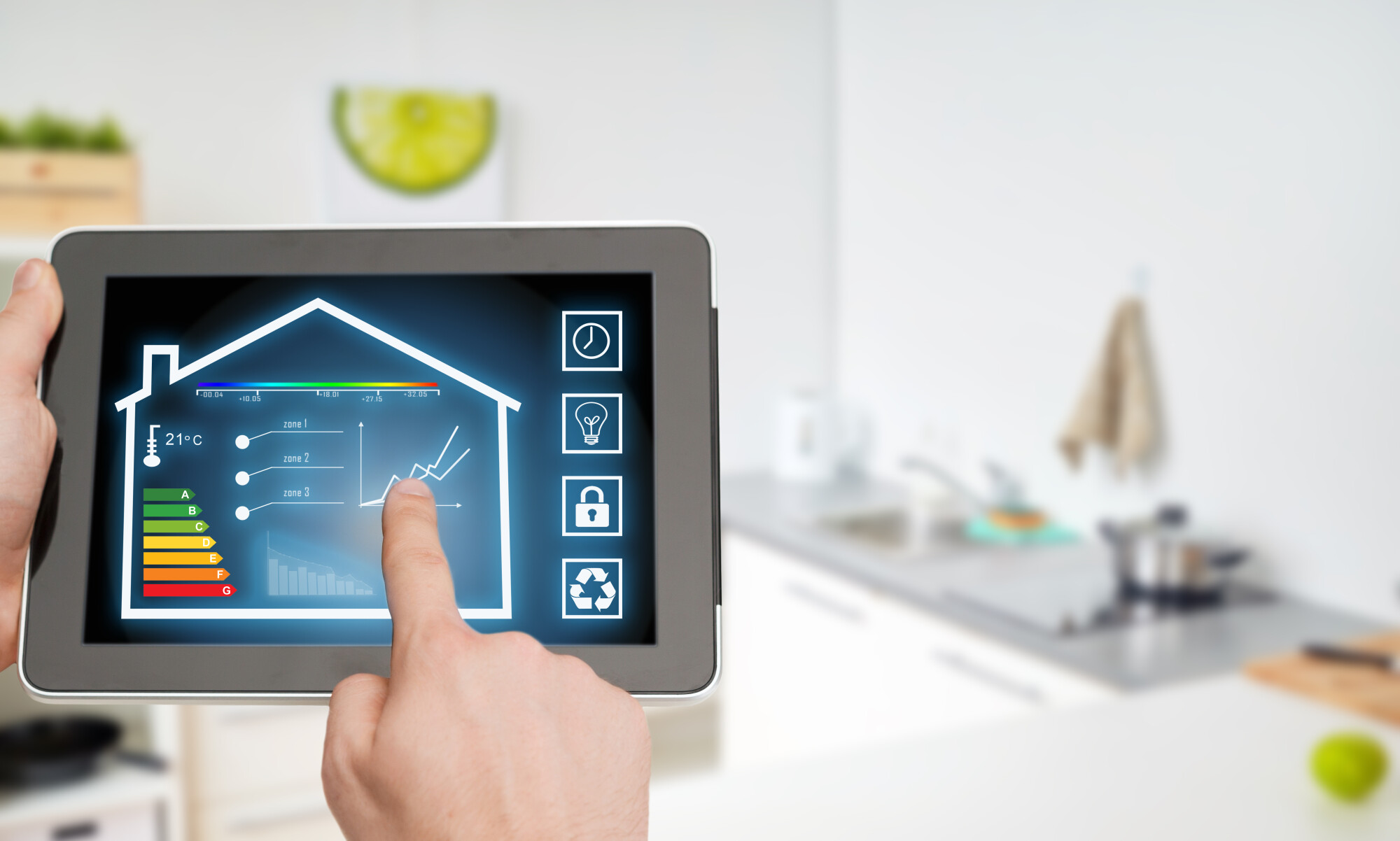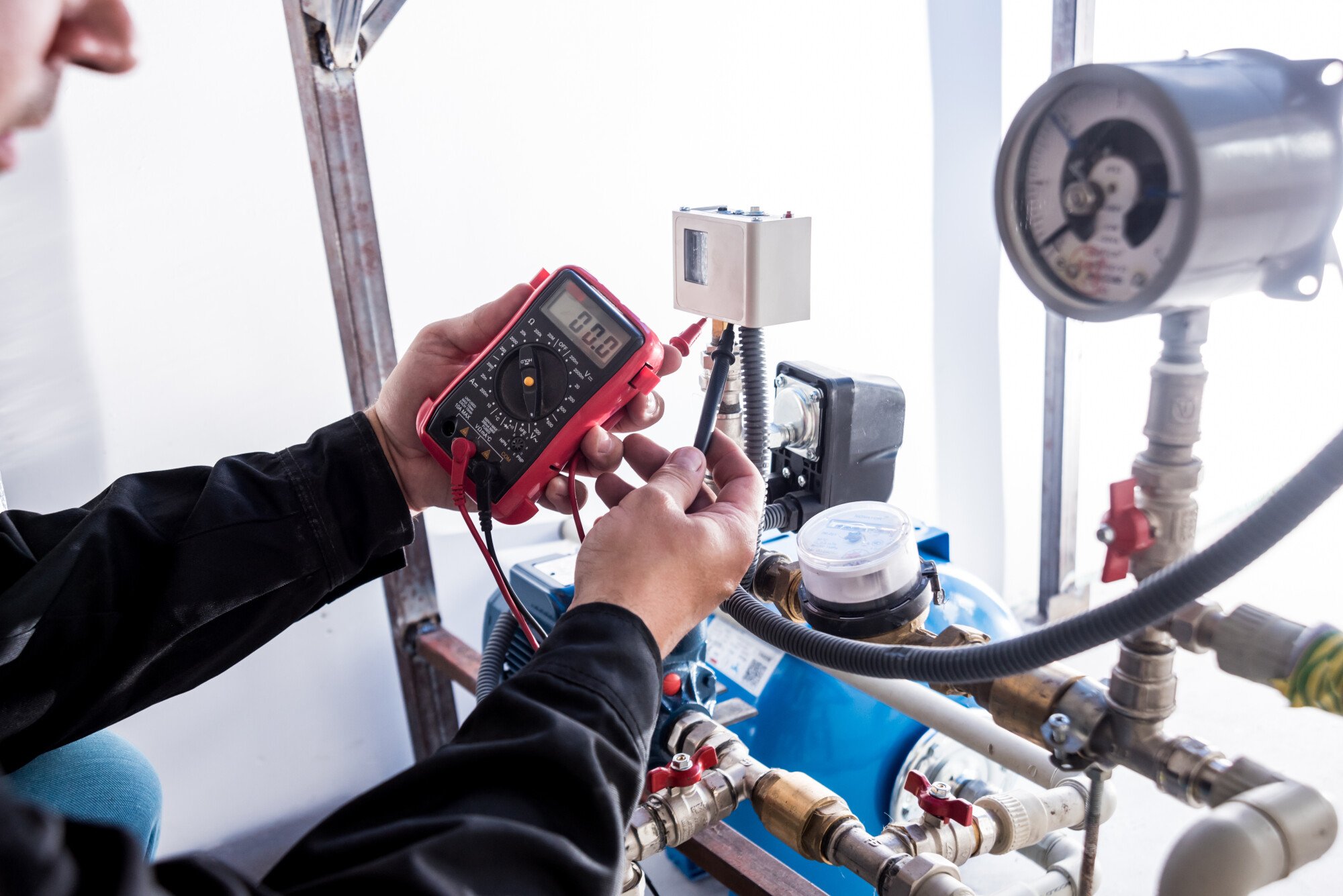Why Your Old AC Unit Has to Go: Advice for Bellaire, TX Homeowners
In March 2022, temperatures near Antarctica spiked 70 degrees Fahrenheit above normal, highlighting our climate's growing unpredictability. For Bellaire, TX homeowners, this is a wake-up call. Relying on an old AC unit in such erratic weather can compromise your comfort and safety.
This guide will show you why it's critical to upgrade to a new, efficient air conditioning system. We'll explore the best types of AC units that match Bellaire's climate, ensuring your home remains a cool sanctuary against the heat.
Worsening Energy Inefficiency
Modern heating and cooling products, particularly ductless mini-split systems, are revolutionizing comfort in Bellaire, TX homes. These systems are a testament to technological advances, offering unparalleled energy efficiency. Their secret lies in targeted cooling and heating, eliminating the energy loss associated with traditional ductwork.
With impressive SEER (Seasonal Energy Efficiency Ratio) ratings, they optimize energy use. Hence, ensuring your home remains cool with minimal electricity. This efficiency leap means you save money on energy bills.
Declining Indoor Comfort
Variable-speed fans and advanced refrigerant technology provide steady temperatures, better humidity control, and enhanced air quality in your home. Spring in Bellaire is not only about beautiful blooms; but also the peak season for allergies. This makes spring the ideal time for an indoor air quality assessment.
As plants release pollen, your home's air quality can impact how you experience allergies. Moreover, spring cleaning stirs up dust, pet dander, and other particulates that have settled over the year, affecting your indoor air.
Assessing your air quality this season can help identify and mitigate these irritants. Thus, ensuring your air is not only cool but also clean and allergen-free.
Escalating Repair Costs
Avoid the financial strain and inconvenience of constant repairs by upgrading to a new AC system. As your old unit gets older, searching for AC repair near me becomes more common. This leads to costs increasing and the risk of a major breakdown is always present.
Choosing to install a new AC unit is not just about staying cool; it's about ensuring cost-effective peace of mind. Furthermore, many services offer an AC repair free estimate, simplifying the decision to upgrade.
In Houston, signs that you need to hire furnace repair services include uneven heating, odd noises, or escalating energy bills. These are all clear indicators that your system requires professional care.
Environmental Hazards
The transition from R-22 refrigerant to R-410A in modern air conditioning units signifies a leap towards more sustainable living. This eco-conscious choice not only lessens the impact on the ozone layer but also reduces the carbon emissions associated with cooling your home. Beyond the significant environmental benefits, there's a personal health advantage to consider.
By minimizing indoor air pollutants through regular heating and air conditioning maintenance, these advanced systems contribute to a healthier indoor environment. Regular maintenance ensures that your HVAC system operates efficiently. This filters out pollutants and allergens that can compromise air quality.
This proactive approach conserves the environment. It also shields you from various health issues related to poor air quality, such as respiratory problems, allergies, and other airborne diseases.
Shortened Equipment Lifespan
Invest in the future of your home's comfort with a new, energy-efficient AC unit. These next-gen innovations promise longer AC unit lifespans and reliable cooling that lasts.
Gone are the days of worrying about your air conditioner leaking or frequent calls to AC companies for emergency repairs. With advanced technology, newer models work smarter, not harder, to keep your space cool. This translates to fewer breakdowns and a longer life for your system.
Increased Operational Noise
Upgrade to tranquility with a modern AC unit. Today's models whisper, transforming your home into a peaceful haven away from the harsh sounds of older, groaning systems. But silence isn't just golden; it's also safer.
A whistling furnace not only irritates but also may signal serious issues, such as dangerous gas leaks or failing bearings. You should not ignore these AC unit issues. Hiring a qualified HVAC technician is crucial; they have the expertise to decipher these sounds. Thus, ensuring your family's safety and comfort.
Don't let a whistling warning turn into a full-blown emergency. Addressing these signs can mean the difference between a simple fix and a costly, hazardous problem.
Decreased Property Value
Boost your home's market appeal by upgrading your AC system. This is not only about achieving a cooler indoor climate; but also an investment that speaks volumes to potential buyers. A modern AC system signals to house hunters that your property is well-maintained, equipped with efficient technology, and ready to provide immediate comfort.
This upgrade can be a deciding factor for buyers, often resulting in a higher selling price. In today's market, where everyone is looking for value, a new AC system is a clear sign your home is a cut above the rest, raising its value and desirability.
Lack of Warranty Security
Embrace the confidence that comes with new AC installations and their accompanying warranties. This isn't just about cooling your space; it's about securing your investment against the unexpected. With a warranty in hand, you're installing an AC unit. Hence, laying a foundation of reliability for years to come.
Should any issues arise, you're covered, ensuring that malfunctions won't disrupt your comfort or your wallet. This level of protection brings tranquility that only homeowners who choose with foresight can appreciate. It's more than an appliance; it's a safeguard for your home's future comfort and your peace of mind.
Don't Wait for Your Old AC Unit to Reach the Verge of Collapse
In Bellaire and surrounding areas in TX, staying cool is about more than just comfort. It is about finding a dependable climate control partner for your home. Choosing to replace your old AC unit with McCann Services turns this task into a positive experience. Our legacy of excellence, built over decades, ensures you receive top-notch service.
Our skilled technicians are at the forefront of providing superior heating, cooling, and air quality solutions. Elevate your home's comfort and efficiency with a team that cares. Don't wait for the next heatwave, reach out to McCann Services today in Bellaire, TX for unparalleled service.
Why Spring Is the Best Time for an Indoor Air Quality Assessment in Bellaire, TX
Did you know that 4% of global deaths are attributed to poor air quality? That's 2.3 million preventable deaths in a single year. Failing to schedule an indoor air quality assessment in Bellaire, TX could put your health at risk.
Schedule your next assessment before spring weather rolls in. Why is spring the best time for indoor air quality testing? Read on to find out.
Spring Indoor Air Quality Testing
As spring weather rolls in, allergy season will as well. Poor outdoor air quality can contribute to poor indoor air quality. Seven of Texas' ten largest counties, including Harris County, received an F grade for ozone pollution.
Neglecting to schedule testing during the spring can mean a difficult (and unhealthy) summer. Here are a few reasons why spring is the best time to schedule an assessment.
It's Prime Allergy Season
As spring weather heats up, plants that were laying dormant over winter will come back to life. Flowers will start pushing through the soil and producing pollen. Grass and trees will add color to your previously dull yard.
While the transition from winter to spring is beautiful, it releases more pollen into the air. Spring is allergy season.
Increased rain and humidity could lead to mold and mildew growth within your home. Spores can proliferate on grass, rotting wood, or damp leaves. They can spread through your air vents or grow in damp areas.
These allergens can affect your home's indoor air quality. Consider having your air quality and HVAC system checked.
HVAC maintenance services ensure your unit is functioning as intended before temperatures rise. As part of your AC tune-up, ask to have your HVAC filter replaced.
The filter will collect tiny airborne particles, including pollen. If the filter clogs, the HVAC system will struggle to push air through. You may need more expensive AC repairs if the system breaks down.
Your HVAC technician can replace the filter to ensure better airflow. They can recommend a new filter with a stronger MERV rating. These filters are more effective at catching tiny airborne particles.
Replacing your air filter will help you breathe easier at home. You can minimize allergens for better air quality.
Spring Cleaning Affects Air Quality
With warmer temperatures rolling in, you're probably ready to store away blankets and start cleaning. About 80% of people plan to spring clean (a 10% increase from three years ago). About 45% take three or more days to fully spring clean their homes.
Spring is a time for airing out your home. Throwing the windows open, however, can invite pollen and other airborne particles inside.
Your cleaning habits can also contribute to poor air quality. Many household cleaners contain volatile organic compounds (VOCs). VOCs can contribute to allergic reactions, headaches, and respiratory problems.
There's a link between exposure to chemicals from cleaning supplies and respiratory illnesses. Products that contain VOCs include:
- Oven cleaners
- Air fresheners
- Dry cleaning chemicals
- Aerosol spray products
- Chlorine bleach
- Furniture and floor polish
- Rug and upholstery cleaners
- Detergent and dishwashing liquid
Avoid mixing bleaching with ammonia. The combination can create gasses that cause breathing problems and death.
Spring cleaning using these products can release chemicals throughout your home. Consider using natural cleaners to minimize pollution. You can mix white vinegar with water as a low-cost alternative.
Schedule indoor air quality testing after completing your spring cleaning. You may recognize it's time to switch to alternative cleaning options.
Summer AC Repairs
Most HVAC units break down during the summer (when they're working harder to keep homes cool). Many HVAC companies are overwhelmed by requests during this time.
Scheduling an air quality assessment during the spring can help avoid an emergency. Instead, you can ensure your unit is functioning effectively before temperatures rise.
Consider investing in routine maintenance. A technician can keep your unit running at its best year-round.
Improving Your Indoor Air Quality
Before your air quality deteriorates, contact an experienced indoor air quality specialist. They can make customized recommendations based on your needs.
They may recommend installing humidifiers, UV air treatment systems, or electronic air cleaners. Their solutions can keep bacteria and pollutants from spreading throughout your home.
Recognize Pollution Sources
An experienced air quality specialist can recognize where airborne pollutants within your home are coming from. These sources may include:
- Fuel-powered engines in your garage
- Gas stoves or unvented heaters
- Radon gas rising from the ground
- Your cleaning supplies
- Nearby plants
- An unserviced HVAC
Recognizing where the pollutants are coming from will allow you to take preventative action. For example, perhaps your HVAC system has contributed to mold growth within your home.
Your HVAC and Mold
When you leave your HVAC system on cool during the cold winter months, moisture in your home will condense. Mold will grow. When you start your HVAC system up for the spring, these spores will spread throughout your home.
Mold can grow in your HVAC system's drain pan. Your AC unit or high-efficiency furnace draws moisture from the air.
The moisture condensates in the drain pain. If neglected, the water can contribute to mold growth.
Your HVAC technician can check the condensate drain line. This pipe removes water from the drain pan. If the line isn't flushed, sludge can build, causing mold.
The evaporator coil draws heat and moisture from your indoor air. It can become coated with dust, causing mold to grow.
Schedule routine air conditioner cleaning and maintenance checks. A technician will assess your unit to ensure it's running properly. With their help, you can minimize mold growth for better air quality.
Schedule an Indoor Air Quality Assessment
Don't wait until a hot summer in Bellaire, TX to request an indoor air quality assessment. Instead, call your local HVAC company right away. They can assess your home's air quality and HVAC unit.
Trust our team at McCann Services to clear the air and improve your home's indoor air quality. We cater our services to each household's unique needs.
Rely on our skilled technicians and three decade's worth of experience. Contact us today to schedule your air quality assessment.
7 Signs You Need to Hire Furnace Repair Services in Houston, TX
83% of newly built homes in America utilize forced-air furnaces.
In Houston, there may not be much use for your furnace during most of the year. The last thing you want when the temperature dips is a furnace that doesn't work. Fortunately, your furnace will let you know when it has problems, so you can fix them if you know how to recognize them.
In today's post, we will tell you 7 of the biggest signs that you need furnace repair. Getting prompt furnace repair services will ensure that you don't end up with costlier issues, or worse, needing total furnace replacement. Keep reading and make heating your home in the winter a priority.
1. Not Producing Enough Heat
One of the clearest signs your furnace will give you that it's got problems is when heating your home becomes difficult. When you turn up the temperature on your thermostat, your furnace should kick in and start producing heat immediately.
When you don't feel the heat, you've got furnace problems. The issue could be as simple as a faulty thermostat that you can replace for $100 or more intensive issues like a broken blower motor or malfunctioning pilot light. To properly diagnose and fix the problem, you need an HVAC professional.
2. Making Unfortunate Sounds
All types of furnaces make noise as they fire up to heat your home. This should raise an alarm, but when your furnace won't stop making noise or makes unusual noises, it's cause for concern.
If you hear loud banging, rattling, or squealing, the best thing to do is turn off your furnace and call in a professional. Banging and rattling could signal loose or broken internal components, so continuing to use the furnace could risk further damage.
Similarly, squealing noises could have something to do with the ignition system. If your furnace ends up with a resulting gas buildup, it could become dangerous over time.
3. Making Unfortunate Odors
You'll notice a trend of relying on your senses to detect furnace problems. It's not unusual to smell fuel odors when you turn the furnace on for the first time after a long period of dormancy, but this smell dissipates in a minute or two.
If a fuel odor appears out of nowhere and doesn't go away, you must turn your system off immediately. It could be a minor issue, like dirt or debris clogging the unit, but the worst scenario is that you have a gas leak.
Gas leaks are extremely dangerous. The more gas that builds up in your home, the greater the risk of explosion. It also poses a major carbon monoxide poisoning risk, which can be deadly.
4. Cycling Problems
Short cycling is a common issue with older furnaces as they wear out and struggle to reach the desired temperature in your room. You'll notice this behavior when your furnace frequently turns on and off, but it could signal a few other issues beyond age-related ones.
For instance, it could be something simple like a clogged air filter. As a furnace owner, it's important to change your air filter regularly. These prevent allergens and contaminants from entering your home, but the filters will become clogged over time.
The more clogged they are, the harder the furnace will have to work, which can create a lot of wear and tear. Simply changing the filters will ensure your system works well for the long haul.
Cycling issues could also be related to airflow or thermostat issues. If you're diligent about changing your air filter and you're still experiencing cycling problems, get a professional in for an HVAC inspection.
5. Poor Indoor Air Quality
Americans spend about 90% of their time indoors, much of which is spent in the home. For that reason, indoor air quality should always be a major priority for every homeowner, especially here in the South, where the muggy air is a breeding ground for bacteria.
Often, you can tell if your indoor air quality is suffering. When you start to notice more debris, dust, and allergens in your home, it's time to start considering your air quality.
As mentioned above, this is most likely due to a clogged air filter. This is a simple bit of HVAC maintenance you can perform on your own, every 90 days or so. It could also have something to do with the filtration system, so regular professional HVAC maintenance is also integral to maintaining air quality.
6. Visible Damage
The average homeowner doesn't spend much time inspecting their furnace for damage. Most types of furnaces should last between 15-20 years, or more with proper maintenance. Near the end of that lifespan, however, you may start to notice visible signs of wear and tear.
Things to look for include cracks, rust, and corrosion, which compromise the structural integrity of the unit itself. If you can see visible damage on the outside of the unit, you can bet that there's as much on the inside. An HVAC professional can tell you if it's time for repairs or replacement.
7. Spiking Energy Bills
One of the clearest signs that you need furnace repair services is a spiking energy bill. When your bills go up suddenly and severely, it tells you that your furnace is using a lot more energy than usual.
A furnace's energy efficiency is directly related to how well it's functioning. Of course, using less energy is great for the environment, but it's also important for your finances. As soon as you notice higher energy bills, schedule an appointment to have your unit inspected.
Simple additions can improve your HVAC system's efficiency. A smart thermostat, for example, can make it so that you only use your furnace at certain times of day or in certain parts of your home. This alone will greatly reduce your energy usage and bills.
Get the Best Furnace Repair Services in Houston
All of these signs indicate some problem with your furnace, so it's important to get furnace repair services as soon as you notice them. To get your furnace repaired by the top HVAC company in Houston, look no further than McCann Services.
For over 30 years, we've been helping Houston residents maintain and repair their HVAC systems. Contact us today to schedule an inspection to get your furnace repaired and working optimally.
Comparing Heating Fuel Options in Houston, TX: Propane, Natural Gas, and Electric
Winter in Houston brings relief from the intense heat and humidity of the summer months. January officially ranks as one of the coldest months in the area. As the temperature drops, your heating system must be able to handle these dips in temperature.
If you are interested in comparing different heating fuel options, we have you covered. This article compares different fuel options and gives you insight into the pros and cons of propane, natural gas, and electricity. Keep reading to stay warm during a cold winter.
Comparing Heating Fuel Options
In Houston, where winters are relatively mild compared to colder regions, the choice of a heating system depends on factors such as efficiency, cost-effectiveness, and personal preferences.
Propane Fuel
Propane is known for its high energy efficiency due to having a high heat output when burned. This converts to lower energy bills for consumers, making it an attractive option as a heating solution.
It is commonly used for heating:
-
Homes
-
Water heaters
-
Stoves
-
Ovens
-
Grills
Pros and Cons of Using Propane
Propane is energy efficient, making it a good option for heating systems and appliances.
Propane appliances are generally easy to use and provide instant and precise control over the level of heat. This offers users convenience and flexibility.
Propane users often have on-site storage tanks, providing independence from utility grids. This can be advantageous during power outages or in areas where natural gas infrastructure is not available.
Propane is considered a clean-burning fuel. It creates less greenhouse gas emissions than some other fossil fuels, contributing to better air quality.
Propane is widely available, with many fuel providers across the United States. Additionally, it has a long shelf life and does not degrade over time.
In some cases, there are government incentives or rebates for using propane. This can include things such as using environmentally friendly applications like propane-powered vehicles or energy-efficient appliances.
Propane performs well in cold weather conditions, making it a reliable source of energy for heating during colder temperatures. A higher grade of fuel may offer the best efficiency.
The price of propane can be subject to market fluctuations that can influence your heating expenses.
Propane users need on-site oil storage tanks, which may require space on the property. Installing and maintaining these tanks can be an additional consideration.
While propane is considered cleaner than some fossil fuels, it is not a renewable energy source. Propane is a flammable gas, and in rare instances, leaks can occur. Proper safety measures are essential to mitigate this risk.
The initial cost of purchasing propane-powered appliances or converting existing systems may be higher compared to some electric options.
Natural Gas
Natural gas is a common heating fuel in urban areas, including Houston. It is delivered through pipelines and does not need on-site storage. Natural gas heating systems are well known for their reliability and cleanliness.
Pros and Cons of Using Gas
Natural gas is often cheaper than other heating options, which can help you save on your energy bill.
Natural gas furnaces are generally more efficient than some other heating systems, providing effective warmth without wasting too much energy.
Natural gas provides a dependable source of energy, and you won't face disruptions in supply like you might with some renewable sources. Natural gas heats up quickly, providing a rapid response to temperature adjustments.
While natural gas is considered cleaner than some other fossil fuels, it still contributes to carbon emissions and isn't as environmentally friendly as renewable energy sources.
Natural gas is a finite resource, and its extraction and use contribute to the depletion of non-renewable energy sources.
Natural gas prices can also be subject to fluctuations, and this may impact your heating costs.
There's a risk of gas leaks, which can be hazardous. It's crucial to have proper ventilation and regularly maintain heating systems to ensure safety.
Electric Systems
Electric heating systems are used in many homes. While electric heating may be more common for smaller spaces, it's essential to consider the overall energy efficiency.
Pros and Cons of Using Electric Heating
Electric heating systems produce no on-site emissions, making them environmentally friendly and contributing to better air quality.
Electric heating systems generally have fewer safety concerns compared to some other heating methods, as there is no combustion involved.
Electric heating systems are often easier to install and can be used in various settings, making them suitable for different types of homes.
Electric heating systems typically require less maintenance compared to some other heating systems, reducing long-term costs.
Prices can be higher than the cost of natural gas, which might result in higher heating bills.
Electric heating systems rely on the power grid. Power outages can disrupt heating, though this might be less of a concern in Houston.
The environmental impact depends on how the electricity is generated. If the electricity comes from non-renewable sources, it might still contribute to carbon emissions. Electric heating systems might take longer to heat a space compared to some other systems.
Key Considerations for Choosing the Best Option
You have done your research and understand the pros and cons of the above-mentioned fuel options. Before making up your mind, consider the following:
Consider the cost of:
-
Initial installation or conversion costs
-
Ongoing fuel prices and supply stability
-
Maintenance and repair expenses
-
Availability and cost of equipment
Evaluate these carefully:
-
Energy efficiency
-
Environmental impact of product
-
Local climate demands
-
Home size and layout
-
Fuel storage requirements
-
Local regulations
-
Health and safety considerations
-
Ease of use
Heating Fuel: Informed Decisions
Ultimately, the best heating fuel options for your Houston home depend on your specific needs. Consulting with a local HVAC professional can help you make an informed decision. They can assist with oil tank placement, assessment of your space and installment and maintenance of your new system.
For expert heating solutions in Houston and Bellaire, TX, look no further than McCann Services. We are trusted cooling and heating experts with extensive experience in providing the correct advice and products to our clients. Contact us today to find out how we can help you stay warm in Houston this winter.
5 Benefits of Regular Heating Maintenance in Bellaire, TX
With an excellent education system and crime rates lower than the U.S. average, there's a lot to love about Bellaire, TX. It's undoubtedly charming, too, with its tree-lined streets, majestic parks, and beautiful houses.
However, Bellaire also has downsides, including its hot, sometimes brutal summers. So, residents have no choice but to rely more on air conditioners. No wonder they spend $3,240 yearly on electricity, 55% more than the U.S. average!
Sounds familiar?
If so, here's a tip to help you control your bills during fall and winter: regular heating maintenance. This, plus regular AC tune-ups, can help you save on energy bills. Moreover, it can help keep your home cozy, warm, and safe, especially in a rare (yet possible) snow event.
So, read on, as we'll discuss how heating maintenance in Bellaire, TX, can benefit you.
1. Services That Go Beyond Cleaning
According to Energy Star, the top causes of HVAC inefficiency and failure are dirt and neglect. This is why it recommends hiring professional HVAC contractors for routine maintenance. For your heating system, the ideal schedule is every fall, before the peak heating season.
While keeping your system clean is essential, professional Bellaire, TX, heating services do more than that. During a maintenance service, an experienced HVAC technician will:
- Thoroughly inspect your system and identify any potential problems
- Clean all essential components (e.g., air filters, burners, and heating elements)
- Lubricate moving parts
- Calibrate and fine-tune the system's settings
- Test the heating system's functionality and efficiency
After that, expect the HVAC expert to make recommendations based on their findings.
Suppose your furnace's burner still works but has developed rusting. The pro may recommend replacing it soon, as rust flakes can clog the burner ports.
2. Maintain Your Heating System's Efficiency
Inadequate airflow, often caused by dirt, dust, and debris, can lower your heating system's efficiency.
A perfect example is poor airflow caused by a dirty air filter. Since the filth on the filter acts as an obstruction, it reduces the amount of air entering the system. With less air to heat, your system works harder as it tries to compensate by pulling more air in.
That increases the heater's workload, leading to increased energy bills.
Another example is when gas furnace burners get clogged with dirt (and rust flakes). These clogs impair the burners' ability to create flames that burn evenly. As a result, the system's heating efficiency drops, forcing it to work harder and burn through more gas.
That wastes resources and money. You don't want that, especially not as natural gas prices typically rise during winter.
Since professional heating maintenance involves a thorough cleaning job, it helps keep your system efficient.
3. Keep Heating-Related Dangers at Bay
Heating fires are among the top culprits behind home fires in the United States. Indeed, they were the second leading cause of U.S. home fires in 2021, linked to 32,200 incidents. They caused hundreds of injuries and nearly half a billion dollars in property loss.
Failure to clean the equipment and delaying necessary heating repair can contribute to such risks.
A gas leak is another danger that faulty or ill-maintained heating systems can cause. This can happen due to pipe or valve damage or a cracked heat exchanger. Either way, it's dangerous as it can leak natural gas or toxic gases, such as carbon monoxide (CO), into your home.
That's another reason to hire reputable HVAC companies in Bellaire, TX. With their comprehensive maintenance services, they'll clean and clear your system of debris that can cause fires. They'll also inform you of any severe issues that require urgent repairs.
4. Minimize Indoor Air Pollutants
Significant dirt build-up can cause your heating system to produce annoying whistling noises. Your heater can also reintroduce pollutants into your indoor air.
Take a clogged air filter as an example. When the heating system pushes air through the filter, it can knock dust and dirt loose. These particles can then mix with the air, lowering indoor air quality (IAQ).
Poor IAQ can negatively affect your health and the well-being of your family. For instance, it can irritate the eyes, nose, and lungs and cause headaches or fatigue. It can also trigger allergies and asthma and worsen the symptoms of existing health woes.
So, before any of that happens, have your heating system undergo comprehensive maintenance.
It's also wise to ask the HVAC technician to teach you how to replace your air filters. They'll change or clean it for you during the service, but you should still learn how as you may have to do it yourself every one to three months. You may have to do it more often if you have pets, cook a lot (with a gas stove or oven), or use a wood-burning fireplace.
5. Prolong Your System's Life
Whenever your system has to work harder than it should, it develops premature wear and tear.
Let's use impaired airflow caused by dirty filters as an example. As mentioned above, this forces your heating system to work harder. It does so by prolonging the heating cycle to reach your desired temperature.
In a furnace, that can mean the heating element stays hot for extended periods. Another is the system's blower motor having to run longer than necessary.
Over time, all that added but unnecessary strain can cause the components to overheat. This chips away at their lifespan, ultimately leading to their early failure.
Now, remember that new heating installation can cost thousands of dollars. That's why you want your existing system to last as long as it should. For the same reason, shower it with the attention and TLC it deserves by having it tuned up every fall.
Reap These Benefits of Regular Heating Maintenance
Regular professional heating maintenance can help make your system perform efficiently and safely. It also helps maintain optimal IAQ while protecting your equipment from early failure.
So, as part of your home winter prep, have your heating system tuned up as early as fall.
Our team of HVAC experts here at McCann Services can help. For over 60 years, Bellaire and Greater Houston residents have relied on our high-quality services.
Call us today to schedule your HVAC maintenance! We'll happily ensure your system keeps you warm and cozy throughout winter.
Is a Whistling Furnace Dangerous? A Guide for Houston, TX Homeowners
According to the Department of Energy (DoE), residential gas furnaces account for about 19% of annual residential energy consumption in the U.S. Given their significant energy consumption, homeowners should understand and address any issues with their gas furnaces, including whistling noises. But is a whistling furnace dangerous, and what does this mean?
Your furnace shouldn't produce loud or disruptive sounds. If you notice unusual noises, the furnace may require attention. Ignoring this issue could lead to more significant damage.
If you're a homeowner in Houston, TX, and your furnace is making a whistling noise, you're not alone. In this guide, we'll discuss the possible causes of a whistling furnace. We'll also tell you what to do to fix it.
Loose Belt or Bearing
The belt in a furnace helps transfer power from the motor to the fan blades. On the other hand, the bearings support the fan shaft and allow it to rotate smoothly. If any of these components are loose, it can cause the fan blades to vibrate and produce a whistling sound.
You can identify a loose belt or bearing by listening to the furnace. If a grinding or clunking noise accompanies a whistling sound, the bearing is likely loose. But if the whistling sound is more high-pitched, the belt might be loose.
Approach a qualified HVAC technician for a free furnace estimate and have your furnace serviced annually to prevent this problem. You should also keep the area around your furnace clean and debris-free.
Build-up of Dirt or Debris
Over time, dust, pet hair, and other airborne particles can accumulate on the blades. Debris can make the blades vibrate and produce a whistling sound. You may witness this if your home has pets or poor air filtration.
In addition to a whistling sound, there are a few other signs that may indicate a build-up of dirt or debris on your furnace fan blades. These signs include reduced airflow from your vents and higher energy bills. Dirt or debris build-up may also cause a musty smell from the vents.
To prevent a build-up of dirt or debris on your furnace fan blades, change your air filter regularly. Dust and vacuum regularly to reduce the airborne particles that can end up on your furnace fan blades. You should also have your furnace serviced annually.
Restricted Airflow
Air flows through the ducts at a higher velocity if restricted. As it flows forcefully, the ducts can vibrate and produce a whistling sound. Your furnace may have this problem if the air filters are dirty or clogged.
Closed or blocked vents can also prevent air from flowing freely through the ductwork. The same applies to ducts that are too small and damaged or leaky ductwork. To help prevent restricted airflow in your furnace system, change the filters regularly and keep the vents clean.
Gas Leak
A gas leak accompanied by a whistling or hissing sound is a cause of concern. Other signs of a gas leak include the smell of sulfur or rotten eggs. A bluish or yellow flame on your gas appliances and white residue around gas lines or connections are other signs of a leak.
If you suspect a leak, cut off the gas supply to your furnace. Open all windows and doors to ventilate the area. Don't use any electrical appliances or open flames, and call a qualified HVAC technician.
Damaged Fan Blade
Fan blades help push air through the ductwork and into your home. A damaged fan blade can vibrate and create a whistling sound. It may have cracks, chips, or warping as visible signs of damage.
If you have a damaged fan blade, have it replaced as soon as possible. The blade can't push air as efficiently as a healthy blade. It can also make your furnace work harder to circulate air, reducing efficiency and increasing energy bills.
To help prevent fan blade damage, schedule regular heating maintenance. You should also clean your furnace regularly, but be careful when handling fan blades. Have your furnace inspected by qualified AC companies to determine the cause of the noise and make any necessary repairs.
Malfunctioning Blower Motor
The blower motor circulates air throughout a home. When it malfunctions, it can produce unusual noises, including a whistling sound. Causes of the whistling sound include poor furnace installation, a misaligned motor, and electrical problems.
If you suspect your furnace's whistling sound stems from a malfunctioning blower motor, have it inspected by a qualified HVAC technician. The technician will diagnose the issue and recommend the appropriate furnace repair. They may lubricate, adjust, or replace it.
If the whistling sound is getting louder or more frequent, you need to replace the blower motor. Do this, too, if the furnace is overheating and blowing cold air. If you have too many appliances running simultaneously, overload them from your furnace since they can strain the blower motor.
Loose Ductwork
Disconnected or loose ductwork can be a common cause of whistling noises in furnaces. It can make air escape and create a whistling sound. Decreased heating or cooling efficiency and uneven temperature distribution throughout your home suggest loose ductwork in your furnace.
Causes of loose ductwork include movement of the furnace or ductwork and wear and tear. If you suspect that your furnace's whistling noises are due to loose ductwork, have it repaired.
To help prevent loose ductwork, have your ductwork inspected and cleaned regularly. Use duct tape or metal straps to secure the ductwork to the walls and ceiling. You should also inspect your ductwork for signs of damage and have a professional HVAC installation performed if needed.
Is a Whistling Furnace Dangerous? Final Word
So, is a whistling furnace dangerous, and could it be a sign of a gas leak? If you hear a whistling sound from your furnace, immediately turn off the system. Hire a qualified HVAC technician to inspect the furnace and determine the source of the whistling sound.
Don't wait until your HVAC system fails to take action. Contact McCann Services today for a free quote and experience the McCann difference. We're Houston's premier HVAC partner committed to customer satisfaction.
